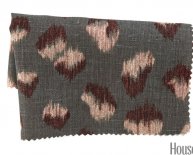| The Benefits of Silkworms
According to many, Silkworms are naturally the healthiest insect you can get to feed your pet. You just can't beat the low-fat content & nutritional value of a silk worm. Silkworms are a high source of Calcium, Protein, Iron, Magnesium, Sodium, and Vitamins B1, B2, and B3.
Let's compare the value of the silkworm vs. five common feeders:
|   |
Fat
%kcal |
Calcium
mg/kcal |
Phosphorus
mg/kcal |
Protein
%kcal |
| Silkworm |
43 |
0.5 |
0.6 |
54 |
| Mealworm |
60 |
0.1 |
1.2 |
37 |
| Waxworm |
73 |
0.9 |
27 |
| Butterworm |
Highest |
| Cricket |
44 |
0.2 |
2.6 |
50 |
Variety is the spice of life!
In the wild, common pets such as reptiles, amphibians, fish, frogs, and snakes munch on worms, spiders, moths, crickets, grubs and more. Some species may pig out. For example, some anoles have been observed to eat upwards of 20-30 unfortunate creatures per day. In the wild, your pet would be getting a huge variety— enough to create a veritable critter buffet. They live like royalty in paradise.
For the happiest and healthiest pets, what you want to do is simulate this natural variety in the diet. Feed your animal as many different healthy things as you can find at the pet store and online. You'll find a nice variety of feeders on this site and others. And of course, silkworms make a great alternative to the same old crickets—which do provide good nutrition and are high in chitin. Silk worms are hardier, less expensive, and easier to take care of than other feeders on the market.
That said, what you need to avoid, feeding your pet are:
Centipedes, butterflies, bees, houseflies, ants, fireflies and wild maggots. These creatures could harm your friend. Fish may also be a poor choice if they contain parasites. For small pets such as lizards, frogs, turtles and others, some food may be too large or unsuitable—earthworms, giant mealworms, and superworms, for example. Items on the market such as can-o-worms offer a vitamin-soaked, dried out convenience that just aren't healthy.
Silkworm vs. the Common Worms
Mealworm |
Mealworms:
A poor feeder because their nutritional value is low, and the exoskeleton hard. Wait until the worm has just shed and feed your smaller reptiles mealworms no larger than one-half inch. Silkworms, however, are soft & juicy with no exoskeleton. And, your animal can eat larger portions if that's what you have on hand. |
 Waxworm
Waxworm |
Waxworms:
These happen to be a common and nutritional reptile and amphibian food, however, they are loaded with fat. Feed these tasty treats in moderation. You can also try to "starve the fat off" of these before using.
|
Trevoworm |
Trevoworms:
A newer entry onto the market. These soft grub-like worms are also nutritious and high in calcium but, like the wax worm, are high in fat. |
Silkworm |
Silk Worms:
According to many experts, silkworms are more nutritious than any other feeder. Anole expert, A. Lanolis says, "...they're naturally the healthiest insect you can get." They are simple to care for and last over a week without food and up to a month or more with food (or until they begin spinning their cocoons). You can easily grow them to the desired size (up to three inches before cocooning) by feeding them with our silkworm food or your own mulberry leaves. Silkworms are also undemanding, only requiring a dry environment. Because of their high calcium content, silkworms are excellent for gravid females. Silkworms help gravid females to produce strong healthy eggs. Because of these reasons, especially their nutritional value and low fat content, silkworms are building a strong demand. |
- First of all, Silkworms are one of the most nutritious, economical and convenient feeders on the market. Silkworms are a high source of Calcium, Protein, Iron, Magnesium, Sodium, and Vitamins B1, B2, and B3.
- Silkworms look and taste better to most animals than many other types of feeders.
- Easier: They cannot jump, escape or hide, unlike many other insects. They are slow moving and easier for your animals to catch.
- Soft Bodied: They are easier for your animals to swallow and digest.
- Silkworms cannot bite or harm your animals because they have no sharp jaws or legs.
- Size and Value: Mature silkworms can grow up to 10 times the weight of a cricket. At one popular nationwide pet store, small crickets currently sell for 9 cents each. Check our Product Page and you'll see that for the same amount of meat, our silkworms sell for substantially less.
- Variety: Animals need variety in their diet to remain healthy.
- Silkworms often cause a feeding response from picky eaters or animals on a hunger strike.
- Ease of care: Silkworms require no special containers or any water.
- No annoying sounds or odors.
- Mortality Rate: Crickets die off quickly; Silkworms are much more hearty and will live substantially longer.
Spend just five minutes ordering your silkworms online and then you're all set! |


 Waxworm
Waxworm















